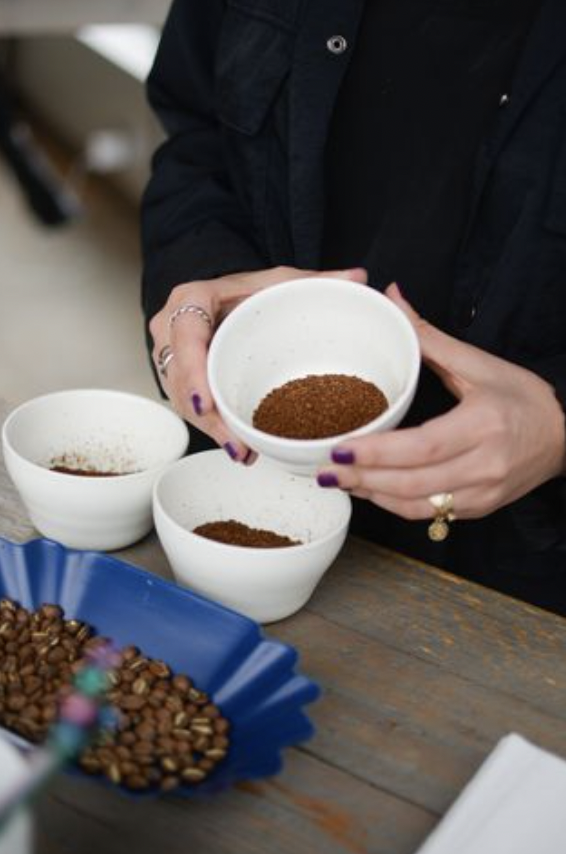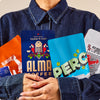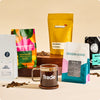It's all in the family at NYC's Bean & Bean Coffee Roasters. 14 years and four locations strong, mother-daughter duo (and certified Q graders) Rachel and Jiyoon Han run Bean & Bean with an emphasis on promoting gender equity in coffee and environmental stewardship. If you find yourself in Manhattan, Long Island, or New Jersey any time soon, we highly recommend a visit to one of their cool cafés.
Where did the name Bean & Bean come from?
"The first bean is unroasted green coffee, the second bean is freshly roasted green coffee - showing our commitment to intentional sourcing and roasting of coffee beans. We were one of the pioneers in New York City to roast in micro-batches on-site at our first location in Manhattan. Another interpretation of the name is that the first bean represents Rachel and the second bean, Jiyoon as a mother-daughter Q Grader coffee team."
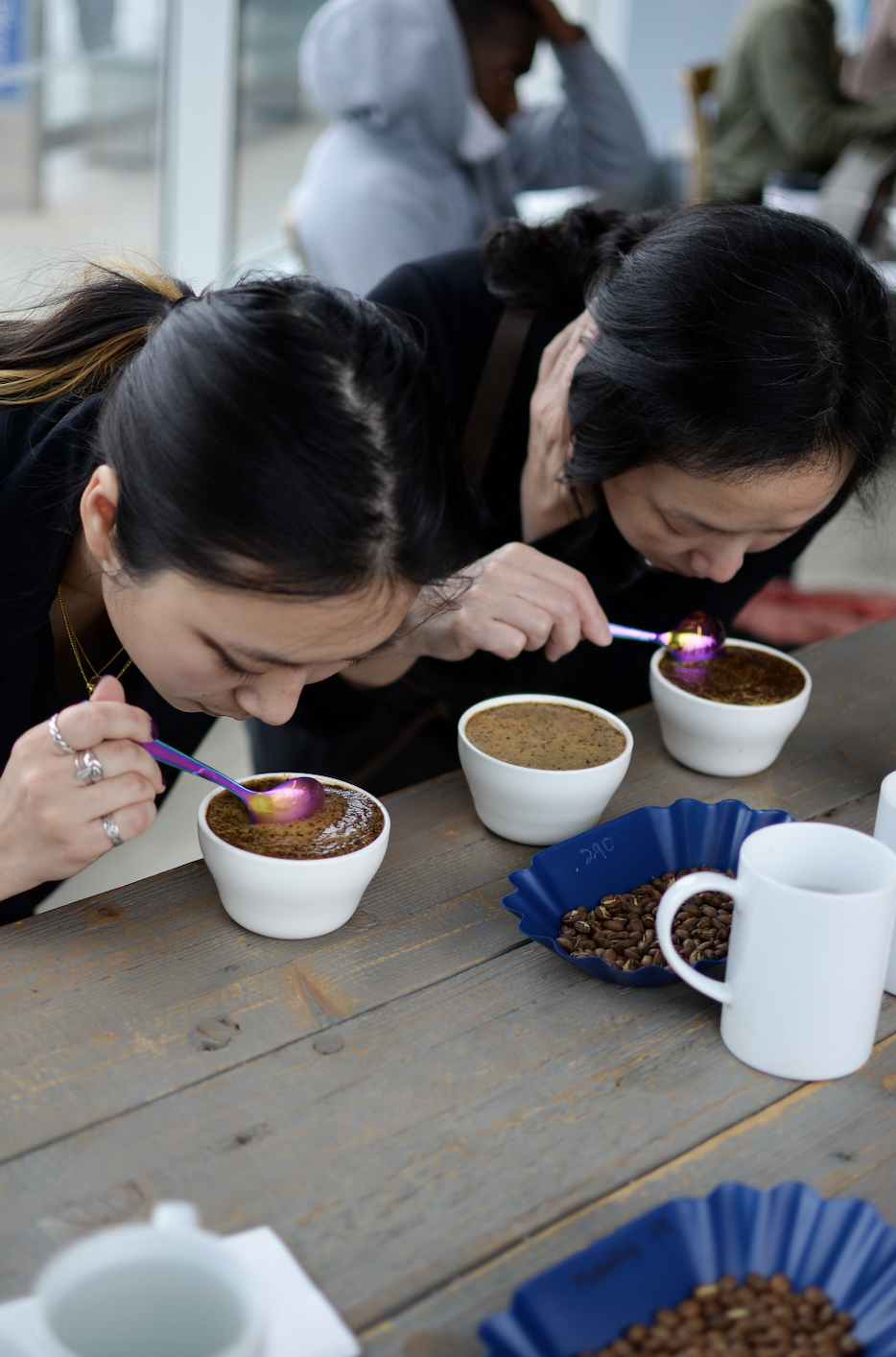
What is your approach to sourcing? Tell us more about your commitment to gender equity and your goal to source as much female-powered coffee as possible.
"Bean & Bean is focused on Female Equity in Coffee. Women make up more than 70% of coffee labor — from farmers to baristas — but are paid substantially less and have fewer workers’ rights than men. Bean & Bean has a conscious commitment to source from female producers whenever possible. Right now, more than half of Bean & Bean's coffee is from women-led or owned coffee farms. We believe in supply chain transparency. That means we have a real relationship with our coffee producers. (Like, we actually know each other and keep in touch via text and zoom.)"
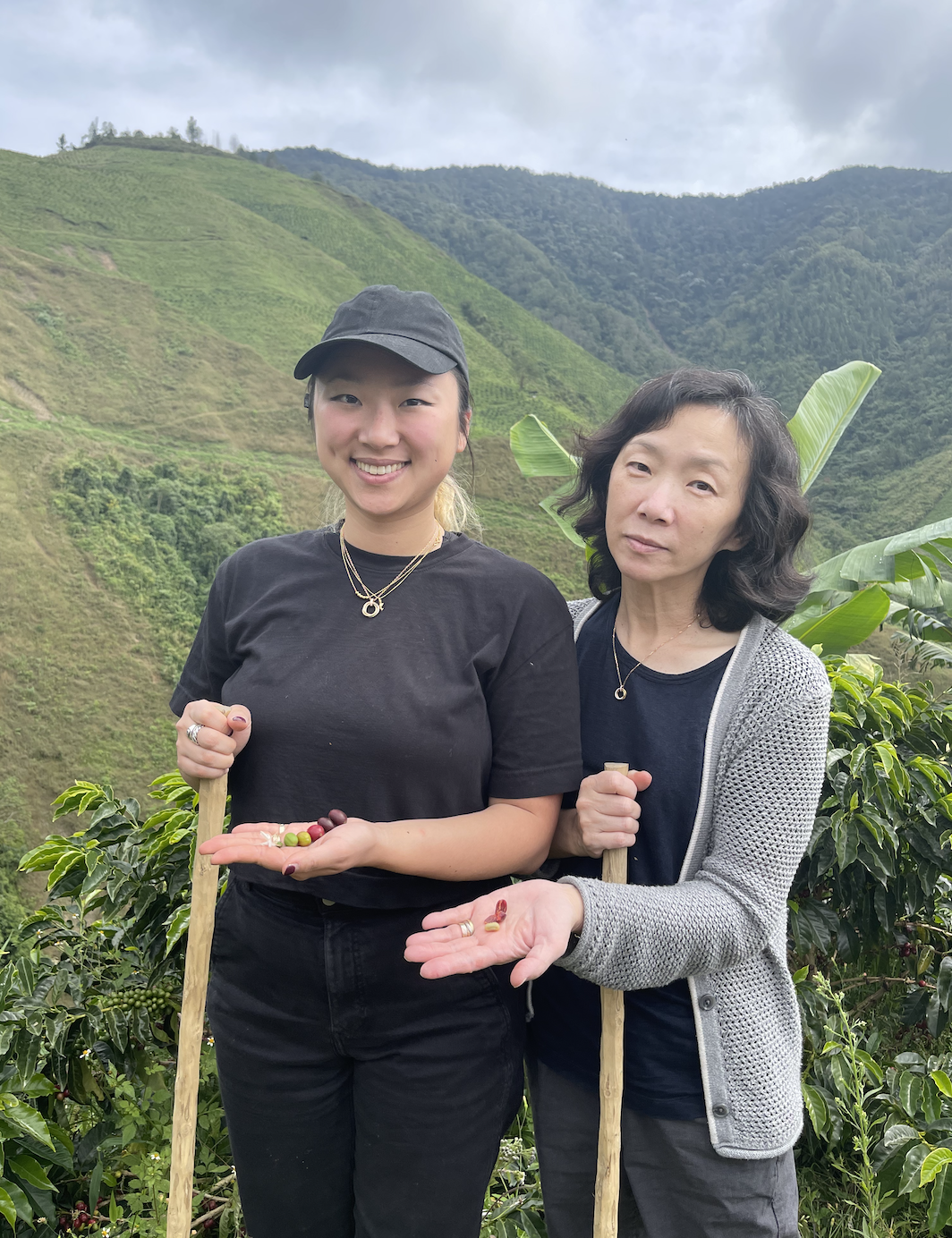
Tell us about your local coffee scene and what the community means to you.
"We have four cafes in New York City and New Jersey: FiDi, Chelsea, Long Island (roastery and cafe, where we roast our coffee in small batches), and Fort Lee. The cafes were designed by Rachel with the philosophy of comfort and familiarity. Each cafe has its own personality and is tailored to the neighborhood it's in, but all are united around the core design philosophy of delivering coffee in a comfortable and familiar space."
Tell us about your partnership with the Sloth Institute. How did it come about?
"As a coffee roaster, we have the responsibility to be mindful of where we source our coffees, including making note of the environmental impact of the farms and producers we work with. Understanding the dangers sloths face in terms of deforestation and the consequences of urbanization in the country, we work with small coffee farms who work with the environment — not dominate it.
Through our partnership with The Sloth Institute, 1% of online sales from coffee beans are donated to help with tracking and caring for sloths affected by these environmental changes. Each month, we symbolically adopt a sloth. We help orphaned and injured sloths return back to the rainforest where they belong. You, too, can adopt a sloth as a gift for yourself or a loved one. The Sloth Institute will issue an Adoption Certificate featuring your adopted sloth. You can read more about our partnership with The Sloth Institute here."
What positive change have you seen within the coffee industry since your founding?
"Specialty coffee has become increasingly more accessible to coffee drinkers, with growing collective concern for coffee production and a healthy supply chain. This is helping bring sustainability in coffee — be it environmental, social, economic, and political — to the forefront."
